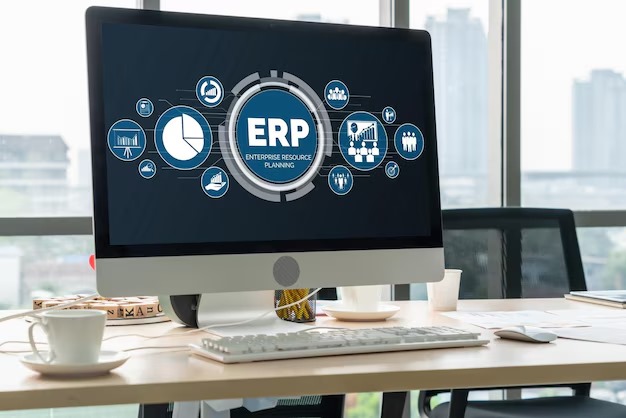Custom ERP Software: Is It Right for Your Business?
Published on October 3, 2024

Author: Isihaka Kyomuhendo
In today’s fast-paced business environment, managing operations effectively is crucial to staying competitive. One tool that has gained popularity in helping companies optimize their processes is Enterprise Resource Planning (ERP) software. ERP solutions integrate various business functions like finance, human resources, inventory, and sales into a single system, providing a unified view of operations. But while off-the-shelf ERP systems are available, many businesses are turning to custom ERP software for a more tailored solution. So, is custom ERP software the right choice for your business? Let's weigh the pros and cons.
What Is Custom ERP Software?
Custom ERP software is a solution designed specifically for your company’s unique needs. Unlike standard ERP packages that offer a one-size-fits-all approach, custom ERP systems are built from the ground up to align with your business processes, industry requirements, and growth plans. This can involve integrating specific modules or features that address your operations more effectively than generic systems.
Pros of Custom ERP Software
1. Tailored to Your Business Needs
The most significant advantage of custom ERP software is that it’s specifically designed to suit your company's requirements. Instead of adjusting your processes to fit a pre-built system, a custom ERP adapts to your workflow. This personalization allows for more efficient operations and a better overall user experience for your employees.
2. Scalability
Custom ERP systems can grow with your business. As you expand or diversify, new features and modules can be added to accommodate new processes or operations. This flexibility ensures that your ERP system remains relevant and useful, even as your business evolves.
3. Improved Efficiency
By streamlining processes and reducing redundancy, a custom ERP solution can significantly improve efficiency. You can eliminate the need for multiple systems, manual data entry, or time-consuming workarounds, freeing up time for your employees to focus on more strategic tasks.
4. Better Integration with Existing Systems
If your business uses several software tools, a custom ERP can be designed to integrate seamlessly with them. This ensures a smoother data flow between different systems, improving decision-making and reducing errors.
5. Competitive Advantage
A custom ERP system can offer features and capabilities that competitors using off-the-shelf solutions might not have. This gives you an edge by enabling more efficient processes, enhanced customer service, or better data-driven decisions.
Cons of Custom ERP Software
1. Higher Initial Costs
Developing a custom ERP system requires significant investment. It’s more expensive than purchasing a pre-built solution, especially at the outset, as it involves custom development, testing, and deployment. The high upfront cost can be a barrier for smaller businesses.
2. Longer Development Time
Building a custom ERP from scratch takes time. You’ll need to invest in the planning, design, development, and implementation phases, which can stretch over several months or even years, depending on the complexity of your business processes.
3. Maintenance and Upgrades
With custom ERP software, you’re responsible for ongoing maintenance, updates, and technical support. This requires either an in-house IT team or an external provider to ensure the system runs smoothly and is updated as technology evolves.
4. Risk of Over-Customization
While customization is a benefit, over-customizing can lead to complexity, making the system harder to use and maintain. It’s crucial to strike a balance between customization and simplicity to avoid burdening employees with an overly complicated system.
Is Custom ERP Software Right for Your Business?
To determine if custom ERP software is the right fit, consider the following:
- Size and complexity of your business: If you have unique business processes that off-the-shelf solutions can’t address, a custom ERP might be ideal.
- Budget: Custom ERPs are a long-term investment, so ensure you have the financial resources to support both development and ongoing maintenance.
- Future growth: If you anticipate significant growth or changes in your business, a scalable, custom ERP could save you time and money in the long run.
- Internal expertise: Do you have the technical support needed to maintain a custom ERP system? If not, you may need to factor in outsourcing costs.
Conclusion
Custom ERP software can provide your business with a tailored solution that streamlines operations and improves overall efficiency. However, it’s essential to weigh the higher initial costs, development time, and ongoing maintenance requirements before making a decision. For businesses with unique needs and long-term growth plans, the benefits often outweigh the downsides, making custom ERP software a strategic investment in future success.
Ultimately, the decision depends on your specific business goals, processes, and budget. Whether custom ERP software is the right choice will depend on how much you value personalization, scalability, and long-term flexibility in managing your business operations.